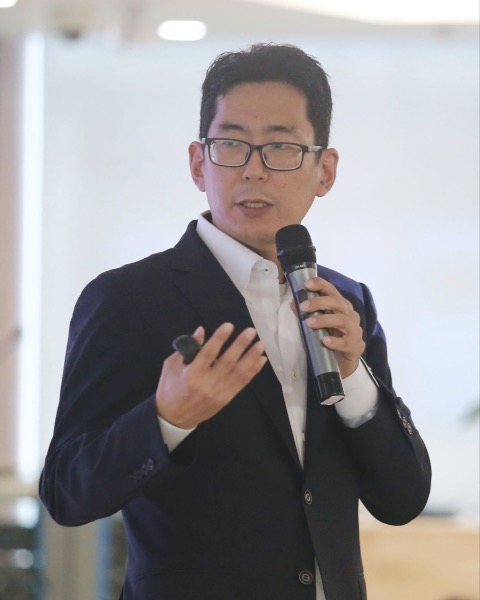Smart Manufacturing
Smart Manufacturing 2: Agentic AI in Manufacturing Operations #1
Virtual Metrology Done Right
Tuesday, October 7, 2025
3:45pm - 4:05pm MT
Location: Smart Manufacturing Pavilion Theater, North Building, Lower Level, Expo Floor

Mike Young-Han Kim
CEO
Gauss Labs
Palo Alto, California, United States
Speaker (SMfG)(s)
As semiconductor devices shrink in size and grow in complexity, manufacturers face increasing challenges in maintaining process visibility, driven by the growing volume of data generated in fabrication plants. While physical metrology remains a critical component of production, it can provide limited visibility with low sampling rate in high-volume manufacturing environments, especially due to the cost, time, and space constraints. To overcome these limitations, virtual metrology (VM) leverages artificial intelligence to predict post-process measurement in real time from existing fab and equipment data, enabling 100% sampling coverage for all process steps without requiring additional hardware. VM also can uncover relationships between contributing factors and measurement variables, actionable insights for root cause analysis and process learning.
Implementing virtual metrology (VM) at scale faces three fundamental challenges: an enormous amount of data beyond human capability to digest, the extensive resources required to develop individual models for each unique chamber, and the constantly changing process and equipment conditions. This presentation introduces how these challenges can be addressed by leveraging AI and advanced software technologies. Learn how VM based on the notion of purpose-specific automatic learning machine (PSALM) enables successful fab-scale operations, and how it can benefit manufacturers by enabling high-impact use cases such as advanced process control and tool-to-tool matching.
Implementing virtual metrology (VM) at scale faces three fundamental challenges: an enormous amount of data beyond human capability to digest, the extensive resources required to develop individual models for each unique chamber, and the constantly changing process and equipment conditions. This presentation introduces how these challenges can be addressed by leveraging AI and advanced software technologies. Learn how VM based on the notion of purpose-specific automatic learning machine (PSALM) enables successful fab-scale operations, and how it can benefit manufacturers by enabling high-impact use cases such as advanced process control and tool-to-tool matching.
